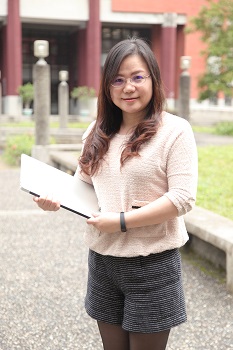Dr. Ting-Chia Hsu is currently a Distinguished Professor at the National Taiwan Normal University (NTNU). She has long been committed to research in technology-enhanced learning, AI literacy, and computational thinking education, demonstrating both academic rigor and practical impact.
She has received numerous prestigious honors from Taiwan’s National Science and Technology Council (NSTC), including the Wu Ta-You Memorial Award, the Outstanding Young Scholar Program, the Distinguished Talent Award, and the International Young Scholar Fellowship. In 2020, her innovative AI2 Robot City board game—which integrates AI-based image recognition—won the NSTC Future Tech Award for its pedagogical innovation and interdisciplinary design. Her original board game, Robot City (focused on computational thinking), was successfully commercialized in 2017 and expanded to the European market in 2024. For these achievements, she received NTNU’s Industry-Academia Collaboration Excellence Award in both 2020 and 2023.
In 2024, Professor Hsu served as lead coordinator for the “AI Pedagogy and Teacher Professional Development” section of Taiwan’s Ministry of Education AI Literacy White Paper, providing key policy recommendations on teacher training for generative AI integration. She was honored with the Early Career Researcher Award by the Asia-Pacific Society for Computers in Education (APSCE) in 2018, and later received its highest distinction—the Distinguished Researcher Award in 2025. From 2021 to 2025, she was listed among the world’s top 2% most influential scientists by Stanford University, and in 2024, ranked fifth in Taiwan in the field of Education.
Beyond her teaching experience at senior high schools and universities, Professor Hsu has made systemic contributions across all educational levels in Taiwan. She serves as the consulting professor for the New Taipei City edition of the Kang Hsuan elementary IT textbook, and as the editor for its junior high school counterpart. She also leads the development of digital curricula for the senior high and vocational tracks on Taiwan’s Adaptive Learning Platform, including courses on “Information Technology” and “Digital Technology Fundamentals.” In higher education, she leads the division of the “Educational Big Data Microcredential Program,” which across three periods has involved 13, 14, and 14 universities respectively. The program supports nationwide data literacy development and facilitates university–government collaboration for learning analytics in K–12 education, promoting data-driven personalized learning in schools.
At the international level, Professor Hsu currently serves as Editor-in-Chief of Research and Practice in Technology Enhanced Learning, a journal indexed in Scopus and ESCI. She has also chaired three major APSCE Special Interest Groups (TELL, CUMTEL, and CTE-STEM), contributing to the advancement of AI and educational technology research across the Asia-Pacific region. She has held visiting scholar positions at the National Institute of Education (NIE), Nanyang Technological University (Singapore, 2011), MIT Computer Science and Artificial Intelligence Laboratory (USA, 2019), and Vilnius University (Lithuania, 2024). In recent years, she has led the design of innovative instructional modules that combine generative AI, image recognition, and gamification, enhancing students’ motivation and AI competencies with strong potential for global diffusion.
|
